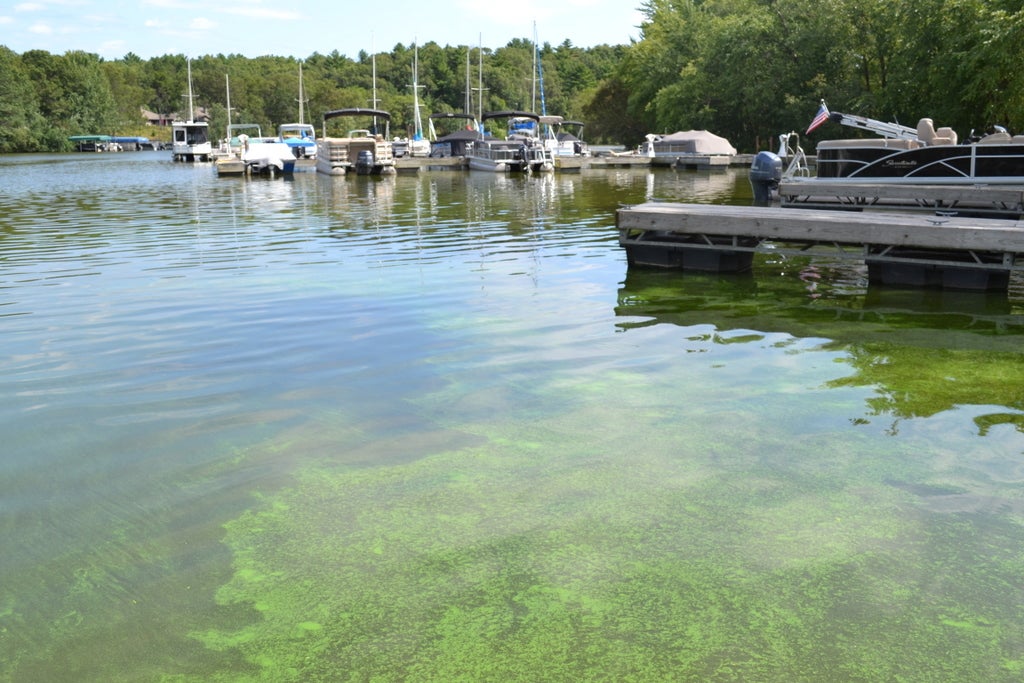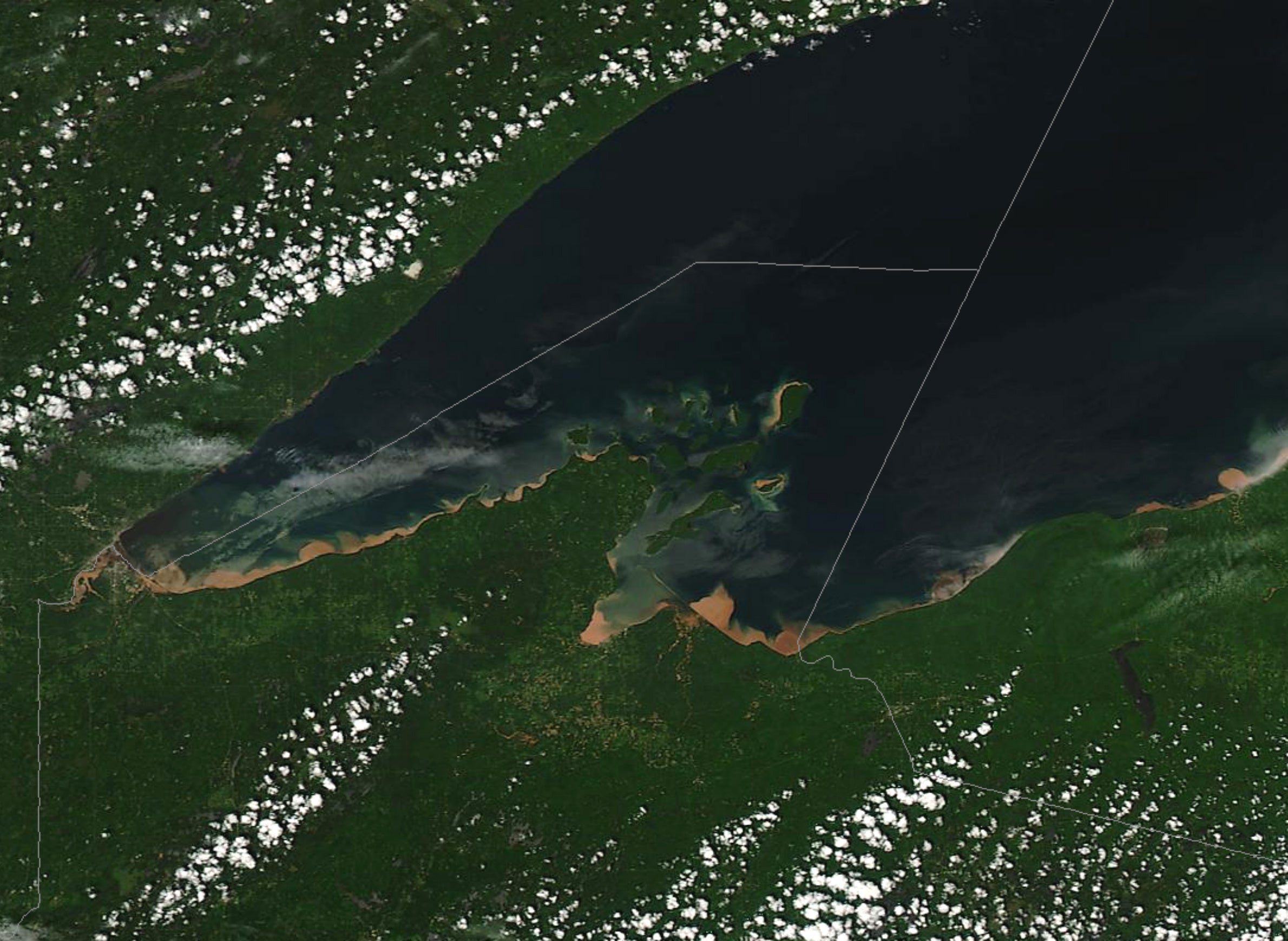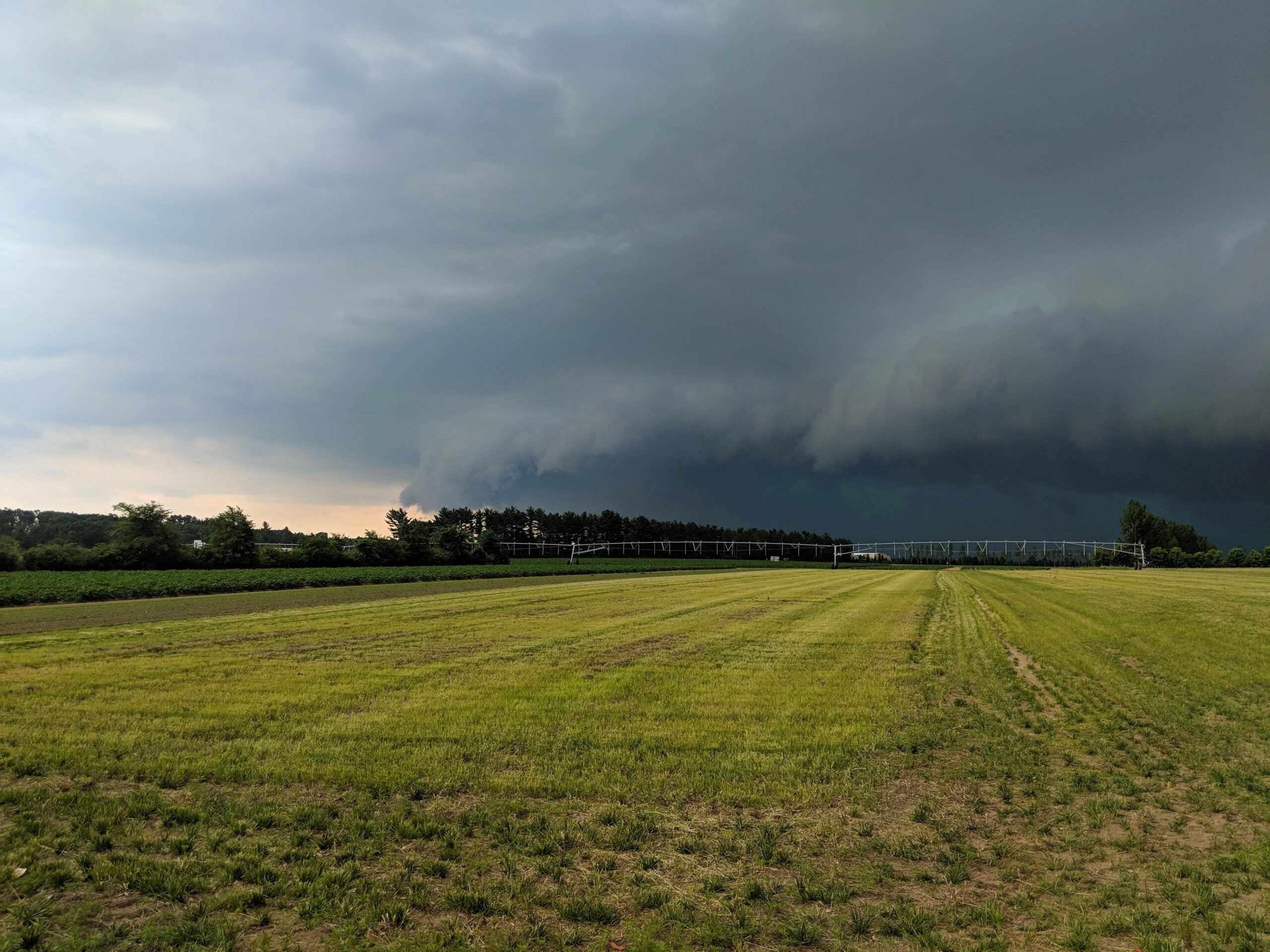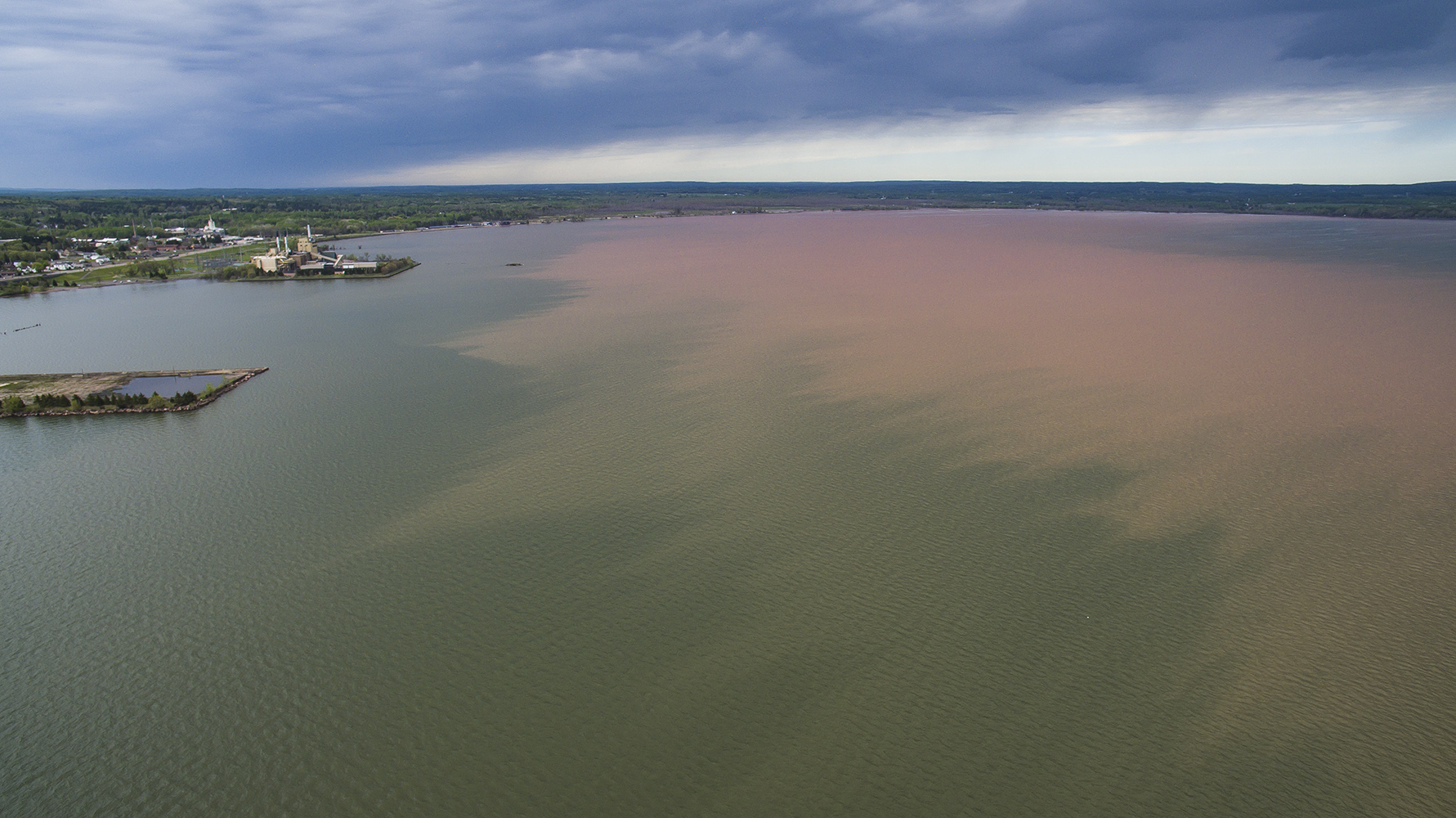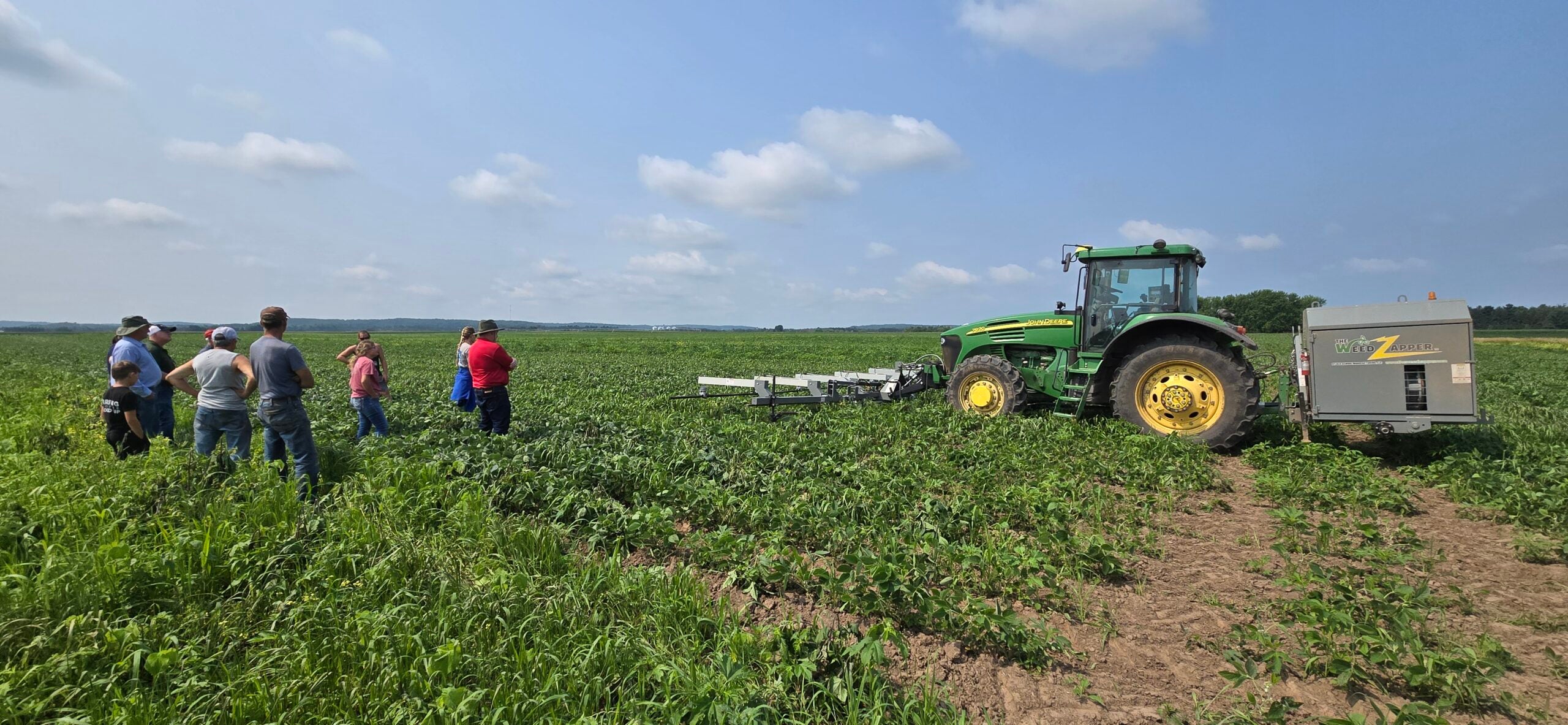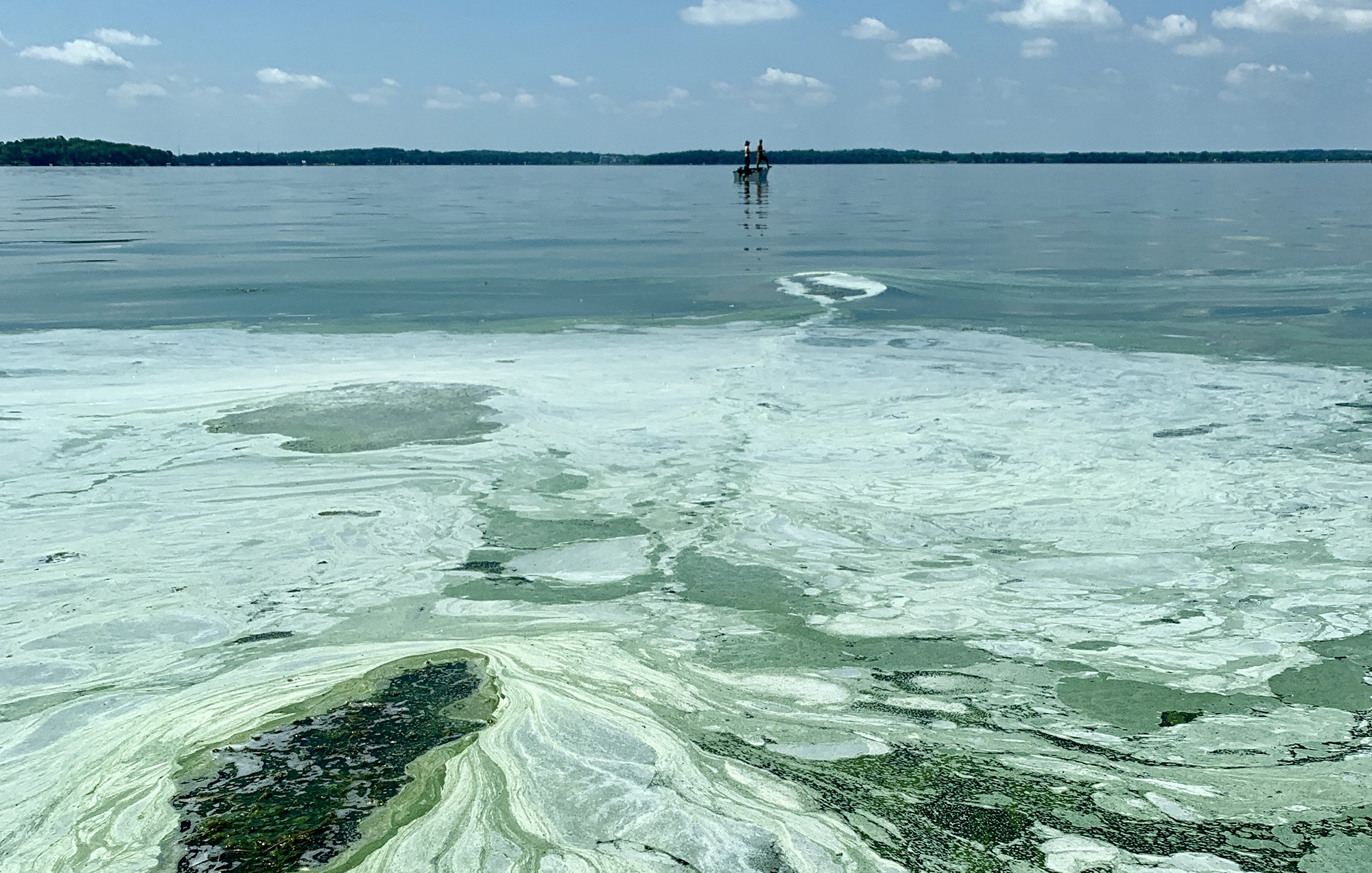In August 2016, Rick Georgeson was livid about the blue-green algae in front of his home on Lake Petenwell, a flowage on the Wisconsin River northeast of Necedah.
“We’ve got light green, dark green. It’s sticking to the rocks. It’s floating in mats out on the lake. It smells like raw sewage. It stinks,” Georgeson said, referring to lake conditions that year.
One year later, it was a different scene. Families were fishing in the harbor and Georgeson was sitting in a pontoon boat, smiling.
Stay informed on the latest news
Sign up for WPR’s email newsletter.
Rick Georgeson, a Lake Petenwell homeowner, is leading a coalition of farmers and environmentalists concerned about the Wisconsin River watershed. Glen Moberg/WPR
“The water has been about the best it’s been in many, many year,” Georgeson said. “The contributing factor to that is that it’s been a cool summer. With the lower temperature of the water, the algae blooms don’t occur.”
Blue-green algae is a kind of bacteria that grows on surface water because of hot weather and phosphorous pollution. It can cause serious sickness if ingested. In summer 2016, it killed a dog that swam in a nearby lake.
But while the algae isn’t as bad this year, it’s still a chronic problem for Lake Petenwell and the Castle Rock flowage to the south.
Georgeson guided the pontoon out into the open water. Two miles down the coast, there it was: a bright green ooze on the surface. In hot summers, the algae can drive tourists away.
“We’ve seen people come to the beach, and open the car door, the kids get out and run down to see the water, and they get back in and leave. It’s just sad,” he said.
Georgeson is the president of an environmental homeowners group called the Petenwell and Castle Rock Stewards, or PACRS. The group has reached out to local farmers to try to stop the phosphorous fertilizer runoff that is feeding the algae. In February 2016, Georgeson organized a seminar on the subject at Mid-State Technical College in Wisconsin Rapids.
That’s where he met John Eron, the president of the Portage County Farm Bureau.
“He shakes my hand, and says, ‘Tell you what, if you bring the lake people up to my farm, I’ll bring the farmers to the lake,” Georgeson remembered.
Thirty-two miles to the north of the Lake Petenwell harbor, on his 800-acre farm, Eron recalled that first meeting with Georgeson.
“Rick kind of leaned over, and said, ‘Hi,’ and I was like, ‘You know, maybe you people aren’t as scary as people thought you were,’” Eron said. “We really have common goals.”
Portage County farmer John Eron, left, and UW Extension ag agent Ken Schroeder are working to stop fertilizer runoff on central Wisconsin fields. Glen Moberg/WPR
The biggest common goal is stopping phosphorus fertilizer runoff, which flows from Portage County farm fields into nearby Mill Creek, and from there into the Wisconsin River and Lake Petenwell.
“We want to keep nutrients and soil on the land,” Eron said. “Obviously, as a farmer, we don’t want to see runoff and see the fertilizer that we spent money to apply leave our property.”
Eron and UW-Extension agriculture agent Ken Schroeder think the answer lies in no-till agriculture and cover crops. It means not digging up the soil in the spring, and sowing the seeds directly into a root mass formed by a cover crop that’s planted in the fall.
“The point with cover crops is we want to cover that soil, and prevent the water from splashing on that soil and moving it downstream,” Schroeder said.
“We’re not digging up the soil in fall and we’re not digging it up in spring,” Eron said.
Eron pointed to a field of healthy soybeans, planted during this year’s unusually wet spring using no-till and a cover crop. He said a plowed field nearby was too muddy to plant.
“With the crazy weather we had, I really wasn’t delayed much with planting simply because with the amount of root mass we had, it was able to hold the equipment, we were able to plant into it,” Eron said.
Schroeder said he believes the techniques will be even more important as the climate continues to warm.
“With the climate change and the heavier rains coming —that are 1 inch plus, you know, 2 inches, 3 inches, 4 inches — it’s a challenge keeping soil in place,” he said.
Schroeder and Eron said they both believe what’s good for local farms is good for Lake Petenwell and the other Wisconsin River flowages.
“This is definitely a win-win. Everything we can do to retain soil and nutrients on our property is a win for us, and it’s a win for the Petenwell Castle Rock Stewards,” Eron said.
“The way we’re going to get things done is everybody working together, coming to the table, talking about it and supporting each other,” Schroeder added.
Georgeson said he believes the decision by PACRS to not be combative in its approach to the farm community is paying off.
“I’m very hopeful for the future,” Georgeson said. “We are really making tremendous headway when we have so many farmers that are interested in these new practices, because they win by keeping the soil on their land, and as a result the water’s cleaner.”
Instead of being adversaries, farmers and environmentalists here have discovered that they can solve a common problem by being friends and partners.
Wisconsin Public Radio, © Copyright 2025, Board of Regents of the University of Wisconsin System and Wisconsin Educational Communications Board.
